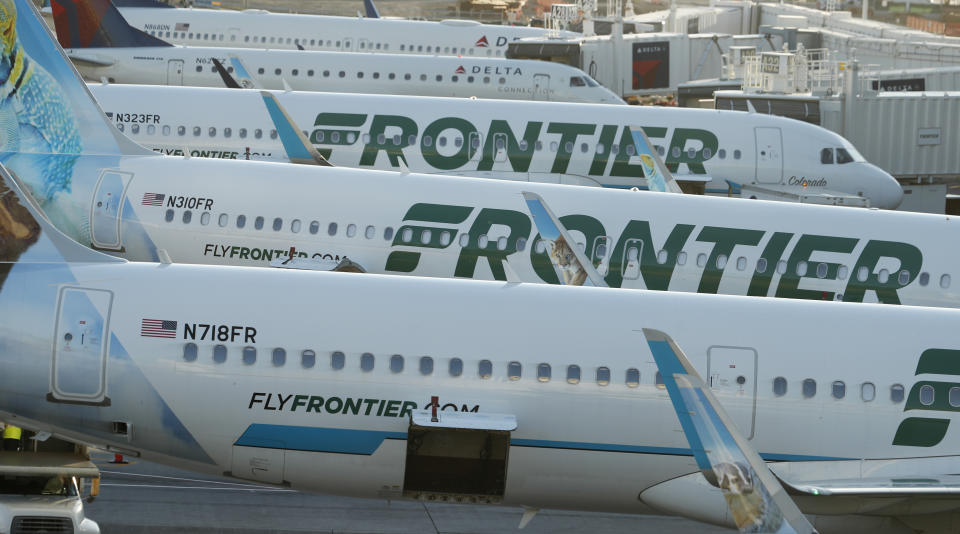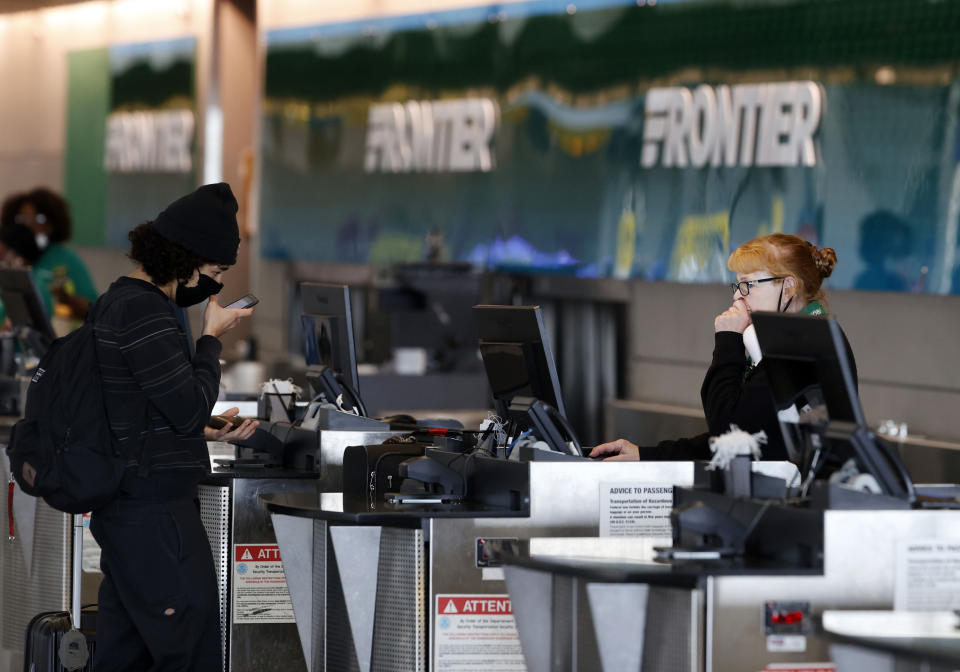Frontier Airlines adopts and quickly rescinds $39 to $89 fee for social distancing

On Monday, budget airline Frontier announced that it would charge passengers a fee between $39 and $89 if they want to keep a middle seat empty between them and another passenger as a way to maintain some semblance of social distancing on an airplane.
“While we believe the best measure to keep everyone healthy is to require face coverings, for those who want an empty seat next to them for extra peace of mind or simply additional comfort, we are now offering ‘More Room,’” said Frontier CEO Barry Biffle in a press release announcing the measure.
But after outcry from the public and various members of Congress, the airline reversed its decision.
Rep. Peter DeFazio (D-OR.) the chair of the House Aviation Committee wrote that he found it “outrageous that an airline sees the imperative for social distancing as an opportunity to make a buck.”
Rep. Steve Cohen (D-Tenn.) and Sen. Ed Markey (D-Mass.) wrote a letter to Frontier saying, "the flying public should not be charged extra to stay healthy on flights."
The lawmakers pointed out that airlines like Delta have already decided to block off middle seats without charge, and that if you made people pay, it’d be the most vulnerable populations flying with this added risk.
Frontier is famous for its low prices, but it’s also famous for the extreme “buy only what you want to pay for” approach that allows customers to itemize almost every aspect of travel, from carry-on bags to food to legroom.
But during the COVID health crisis, monetizing reduced risk to deadly viral infection proved a bridge too far.
"We recognize the concerns raised that we are profiting from safety and this was never our intent. We simply wanted to provide our customers with an option for more space,” Frontier’s CEO said in a letter to lawmakers.

Rep. Cohen approved of Frontier’s change.
“Frontier is doing the right thing: keeping its passengers and crews safe and not charging passengers to keep a healthy distance from one another,” wrote Cohen in a release. “Like the airlines’ decisions last week to require passengers and crews to wear face masks during the ongoing pandemic, this decision was the commonsense response to an evolving situation.”
Cohen then touched on one of the key themes of the fraught reopening of the economy: “Only by the public feeling confident that they’re not risking their health in flying will the airlines see passengers return.”
For airlines and other businesses with low margins and financial worries, this will likely be just one of many times a business puts itself in this position. For low-cost airlines, the entire business model rests in having a dense cabin of filled seats, even if oil prices stay low.
Already, airline trade groups like Airlines for America are expressing concern about the "unsustainable" nature of flying planes far below normal capacity as demand has dropped 96% — the lowest in jet-age times.
--
Ethan Wolff-Mann is a writer at Yahoo Finance focusing on consumer issues, personal finance, retail, airlines, and more. Follow him on Twitter @ewolffmann.
Warren Buffett explains the simple reason the U.S. will never default on its debts
5 key ways healthcare could change post-coronavirus: analysts
Here's a list of CEOs taking pay cuts amid the coronavirus crisis
Follow Yahoo Finance on Twitter, Facebook, Instagram, Flipboard, LinkedIn, and YouTube.
